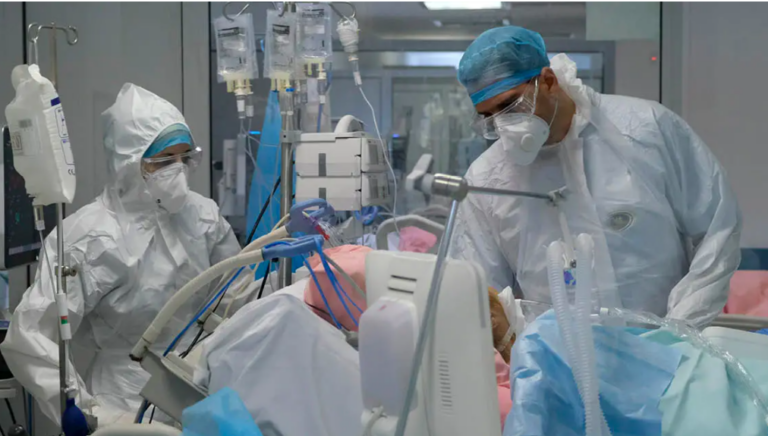The Threat of Superbugs
Antibiotic-resistant microbes have overrun Greek hospitals, according to a report by the European Center for Disease Prevention and Control (ECDC). This alarming finding, coupled with Greece’s ranking as the top antibiotic consumer in Europe, could prompt travel advisories from foreign governments. Prominent experts, including Nikolaos V. Sypsas, President of the Hellenic Society for Infectious Diseases, and Aikaterini Argyraki, General Secretary of the Society, share their insights on this public health crisis.
“Antimicrobial resistance is invisible, but its victims are not,” was the central message during the European Antibiotic Awareness Day, coinciding with the Global Antibiotic Awareness Week. The recent death of psychiatrist Dimitris Soura, attributed to invasive staphylococcal infection, highlights the relentless battle against superbugs—pathogens responsible for severe infections like pneumonia, sepsis, and surgical site infections that nullify even the most potent antibiotics. These pathogens represent one of the greatest threats to global public health.

Exposure to such microbes can occur anywhere, including outside hospitals, as underscored by recent findings. “Think about how often people at a restaurant wash their hands before eating,” notes Dr. Aikaterini Argyraki, emphasizing the pervasive presence of microbes and the neglect of basic hygiene practices.
Why Resistance Happens
“Antimicrobial resistance arises when microorganisms develop mechanisms to counteract antibiotics. This primarily occurs due to the overuse and misuse of antibiotics, which eliminates sensitive strains while allowing resistant ones to multiply,” explains Argyraki. Resistant microbes can transfer genetic resistance to others, amplifying the spread.
Global and Local Concerns
The World Health Organization (WHO) reports that multidrug-resistant microbes claim 1.3 million lives directly each year and contribute to 5 million additional deaths. By 2050, infections from resistant microbes could become the leading global cause of death, surpassing cancer and cardiovascular diseases, notes Nikolaos Sypsas, emphasizing the urgency of interventions in Greece, where the issue is chronic.
A Culture of Overprescription
According to the European Surveillance of Antimicrobial Consumption Network (ESAC-Net), Greece leads Europe in antibiotic use in the community with 28.5 daily doses per 1,000 residents, far exceeding the EU average of 20 daily doses. Greek hospitals also top the charts for “last-resort” antibiotics prescribed for multidrug-resistant bacteria, with usage rates of 15.9% compared to the EU average of 5.4%.

Argyraki highlights a cultural issue: “Patients often pressure doctors to prescribe antibiotics, even for viral infections where they are ineffective. This overuse leads to a vicious cycle—common antibiotics lose effectiveness, stronger drugs are required, and infections from resistant microbes become prevalent.”
A Threat to Tourism
On November 21, the ECDC released findings from an April 2023 visit to Greek hospitals. The report explicitly stated that Greek hospitals are unsafe due to the high prevalence of multidrug-resistant infections caused by pathogens like Klebsiella pneumoniae and Acinetobacter baumannii.
“This alarming development could justify travel advisories from other governments, potentially impacting Greece’s tourism industry,” warns Sypsas.
Steps Toward Hope
Recent funding from the EU Recovery and Resilience Facility (RRF) is enabling Greece’s National Public Health Organization (EODY) to address the crisis. Efforts include hiring infection control nurses, collecting data, and equipping hospitals, particularly pulmonary laboratories, with advanced tools.
“While systematic efforts are underway, tackling antimicrobial resistance requires substantial investment from the state. Without funding and organization, this problem cannot be resolved”





